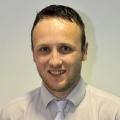
HEALTH bodies have urged people to call 111 when they need urgent medical help that is not an emergency.
Bosses hope it will reduce pressures on already stretched A&Es in Lancashire, which include those in Blackburn and Chorley hospitals.
The calls have been made after the majority of people in a survey were found to not use NHS 111 as their first port of call when they need urgent treatment.
Patient watchdog Healthwatch Lancashire recently spoke to 153 patients in the A&E Departments of six hospitals in Lancashire.
After asking people whether they spoke to anybody before attending, of the 146 who answered, only 22 said NHS 111, whereas 66 said nobody, 36 said my GP and 10 said 999.
Mike Wedgeworth, Chair of Healthwatch Lancashire said the research showed there is a 'long way to go' before the public gets the message.
Mr Wedgeworth said in a blog post: "Another Healthwatch Lancashire survey conducted two years ago of over 1,000 people all over the County showed that although 80% had heard of NHS 111, only 42% had made use of it."
"All this suggests, and the NHS does not deny it, that there is confusion about where to go for help."
To ease this problem, he said that the NHS is looking to establish new urgent treatment centres, which will be open at least 12 hours each day, seven days a week.
They would be led and staffed by GP's and be able to do simple diagnostic tests, with appointments crucially booked direct via NHS 111.
Mr Wedgeworth said: "A team of experts is working to open these centres across Lancashire.
"The expectation is that, by using them, patients will get the most appropriate treatment more quickly, and avoid the need to travel and queue at A and E.
"It’s an ambitious plan, and to be successful it depends on the right staff being available at the right place and at the right time.
"The fear must be that the increasing shortage of GP’s and nurses will frustrate the big hope."
Claire Olive, head of North West Ambulance Ambulance Service’s NHS 111, said they 'welcomed' Mr Wedgeworth's comments.
Ms Olive said: "We agree with the mantra: ‘phone up before you turn up’, in order to direct people to the right care, at the right time, in the right place.
“So when it is less urgent than 999, we are here for the people of Lancashire, when they need us.’’
Dr. Damian Riley, Medical Director at East Lancashire Hospitals NHS Trust, which had the worst performing A&E in the country on one day earlier this month, said: “I want to thank Mike Wedgeworth, his colleagues at Healthwatch Lancashire and patients for drawing attention to the fact that many people could gain prompt and suitable advice via NHS111.”



Comments: Our rules
We want our comments to be a lively and valuable part of our community - a place where readers can debate and engage with the most important local issues. The ability to comment on our stories is a privilege, not a right, however, and that privilege may be withdrawn if it is abused or misused.
Please report any comments that break our rules.
Read the rules here